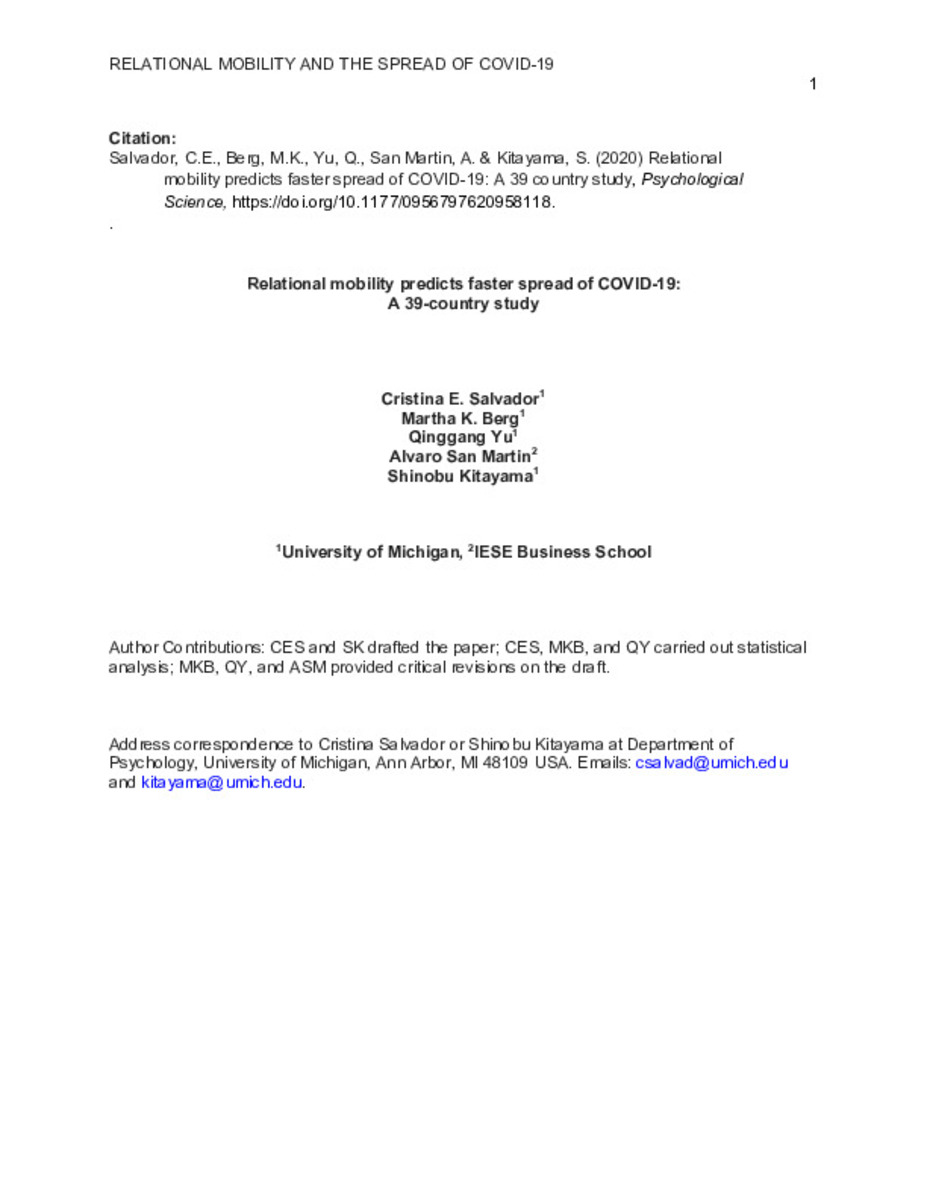Relational mobility predicts faster spread of COVID-19: a 39-country study
Palabras clave :
COVID-19
Relational mobility
Sociocultural factors
Open data
Open materials
Movilidad relacional
Factores socioculturales
Datos abiertos
Materiales abiertos
Fecha de publicación :
11-sep-2020
Cita:
Salvador, C.E., Berg, M.K., Yu, Q., San Martin, A., Kitayama, S. Relational mobility predicts faster spread of COVID-19: a 39-country study. Psychological Science 2020, Vol. 31(10) 1236–1244
Aparece en las colecciones:
Estadísticas e impacto
0 citas en

0 citas en

Los ítems de Dadun están protegidos por copyright, con todos los derechos reservados, a menos que se indique lo contrario.







